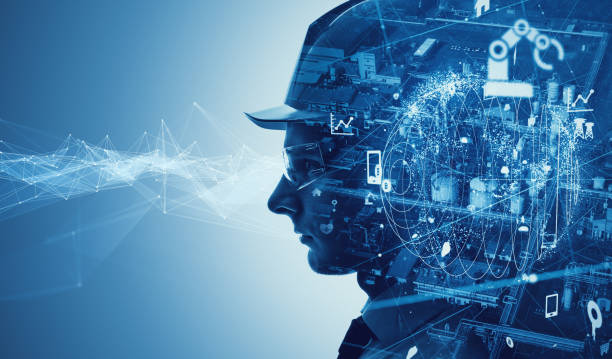
Technology is a transformative force shaping human development across various sectors, including education, healthcare, finance, and environmental sustainability. It bridges inequalities, enhances quality of life, and creates new opportunities, especially for underserved communities. From digital literacy programs to renewable energy solutions, the integration of technology is driving economic and social progress. This blog explores how technology fosters human development, the challenges it presents, and what the future holds.

Technology plays a crucial role in improving education, healthcare, financial inclusion, and sustainability. In education, e-learning platforms have expanded access to quality learning opportunities worldwide, particularly in remote and underserved areas. Digital literacy programs equip individuals with essential skills for the modern workforce, and educational technology tools are making learning more interactive and engaging.
In the healthcare sector, telemedicine services and mobile health technologies have improved access to medical care, allowing patients to consult with doctors remotely. Artificial intelligence in diagnostics and wearable health devices enables early detection of diseases, while digital healthcare records streamline medical processes, reducing inefficiencies and errors.
Economic growth and financial inclusion are also driven by technological advancements. Financial technologies such as mobile banking and blockchain enable unbanked populations to participate in the global economy. Online skill development platforms help individuals acquire new competencies, increasing employability. E-government services simplify public administration, improving transparency and accessibility to government resources.
Technology is also vital for environmental sustainability. Renewable energy solutions decrease reliance on fossil fuels and promote cleaner alternatives, supporting long-term ecological balance. Smart agriculture technologies optimize farming techniques, increasing productivity while conserving natural resources. Internet accessibility initiatives reduce the digital divide, ensuring that all individuals have the opportunity to benefit from technological advancements.

Several real-world applications demonstrate how technology is changing lives. Digital literacy programs in Africa, such as Google's "Grow with Google" initiative, provide free online courses to help individuals develop technical skills, improving employment opportunities. Telemedicine in rural India, through the "eSanjeevani" initiative, connects patients with doctors via online consultations, reducing the need for travel and ensuring timely medical interventions.
Blockchain technology is making a social impact by enhancing transparency in supply chains. Companies like IBM are using blockchain to ensure ethical sourcing in industries such as coffee and cocoa production. Artificial intelligence is also revolutionizing healthcare. Google’s DeepMind developed an AI system capable of diagnosing eye diseases with accuracy comparable to expert ophthalmologists, enabling more precise treatment decisions.
In the agricultural sector, smart farming technologies are being used to enhance efficiency. Farmers in Brazil have adopted IoT-based smart irrigation systems that monitor and control water usage, increasing crop yields while conserving valuable resources. These examples highlight the ways in which technology can drive economic and social improvements worldwide.

Despite the benefits of technology, several challenges must be addressed to ensure equitable development. The digital divide remains a major concern, with many rural and low-income communities lacking reliable internet access. The high cost of devices and digital infrastructure further limits accessibility, preventing some populations from benefiting fully from technological advancements.
Privacy and data security are growing concerns in the digital age. The increasing use of online platforms raises risks related to cybersecurity and personal data protection. Regulatory frameworks must balance innovation with the need to safeguard user privacy, ensuring that individuals’ information is not exploited.
Ethical considerations in artificial intelligence and automation are also critical. AI-driven decisions in healthcare, finance, and employment must be transparent and free from bias. As automation continues to replace traditional jobs, policies need to support workforce reskilling to prevent large-scale unemployment.
Regulatory and policy challenges present additional obstacles. Governments must establish clear guidelines for emerging technologies such as blockchain, artificial intelligence, and fintech to prevent misuse while fostering innovation. Stronger policies are required to promote digital inclusion, ensuring that no one is left behind in the rapidly evolving technological landscape.

Several trends are shaping the future of technology-driven human development. The expansion of artificial intelligence in healthcare will lead to more personalized treatments, enabling doctors to develop targeted therapies based on individual genetic and lifestyle factors. Smart cities will continue to evolve, with IoT-enabled infrastructure improving urban planning, transportation, and public services.
Advancements in renewable energy will accelerate the transition to sustainable energy sources. Improved solar and wind energy storage technologies will make renewable power more accessible and reliable. The importance of digital financial literacy will grow as more individuals rely on mobile banking and cryptocurrency, necessitating education programs to help them navigate these platforms safely.
The rise of virtual and augmented reality will transform education by making learning more immersive and interactive. Online learning experiences will become more engaging, helping students retain information better. These innovations will contribute to a more inclusive and equitable society, ensuring that technology serves as a force for good in human development.

Technology enhances human development by improving access to education, healthcare, financial services, and sustainability initiatives. It creates opportunities for economic growth, reduces inequalities, and enhances quality of life.
Key challenges include the digital divide, privacy concerns, ethical AI use, and regulatory barriers. Ensuring that technological advancements reach all communities equitably remains a major concern.
Digital literacy programs help individuals develop essential skills for the modern workforce, enabling them to access better job opportunities, engage in e-commerce, and participate in the digital economy.
Artificial intelligence improves diagnostics, enhances patient care through predictive analytics, and streamlines administrative processes, making healthcare more efficient and personalized.
Governments can implement policies that promote digital inclusion, invest in infrastructure for internet accessibility, regulate data privacy, and support innovation in sectors such as renewable energy and financial technology.
Technology is a powerful tool for human development, providing solutions that enhance quality of life, drive economic growth, and create a more inclusive and sustainable future. By addressing challenges such as digital inequality and ethical concerns, societies can harness technology’s full potential to build a better world for all.
Would you like to explore specific case studies or emerging trends in more detail? Share your thoughts in the comments below!